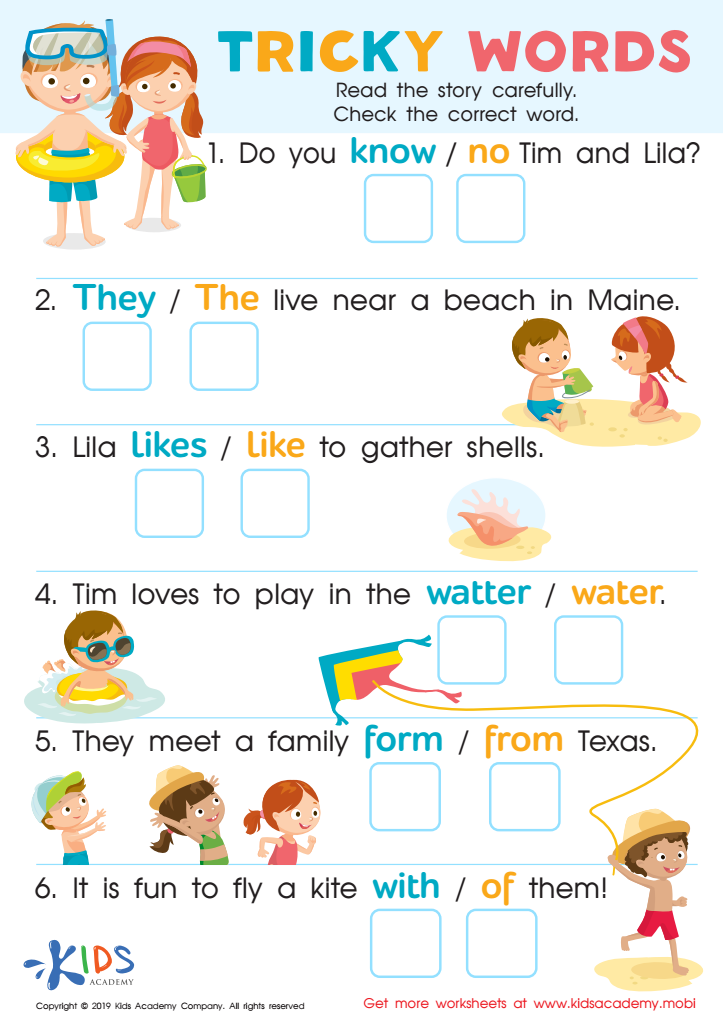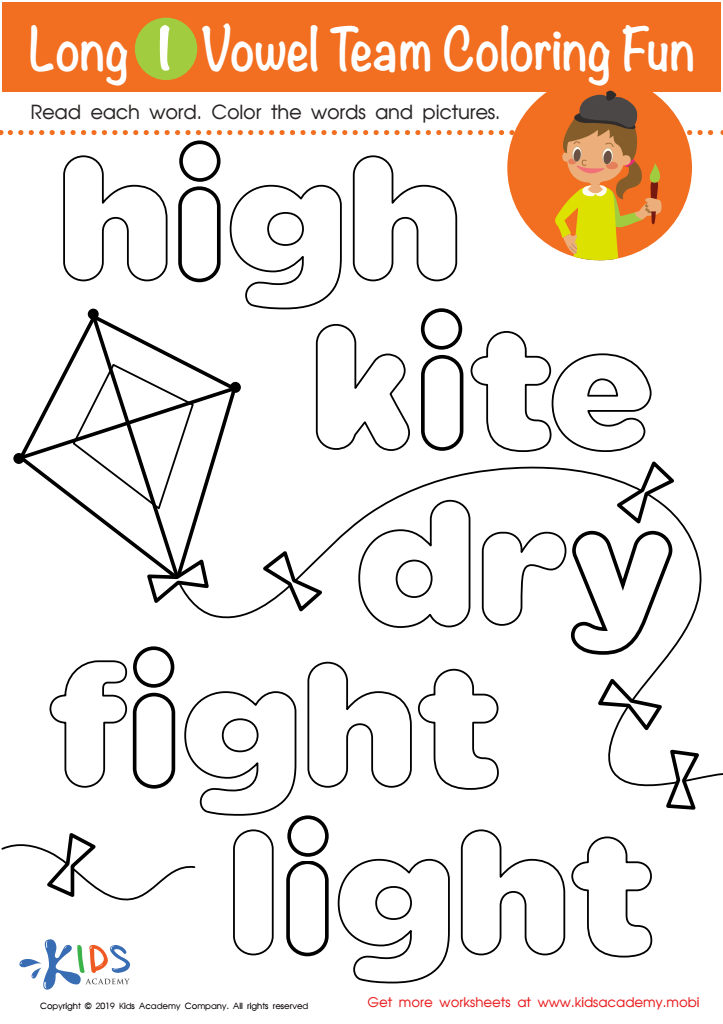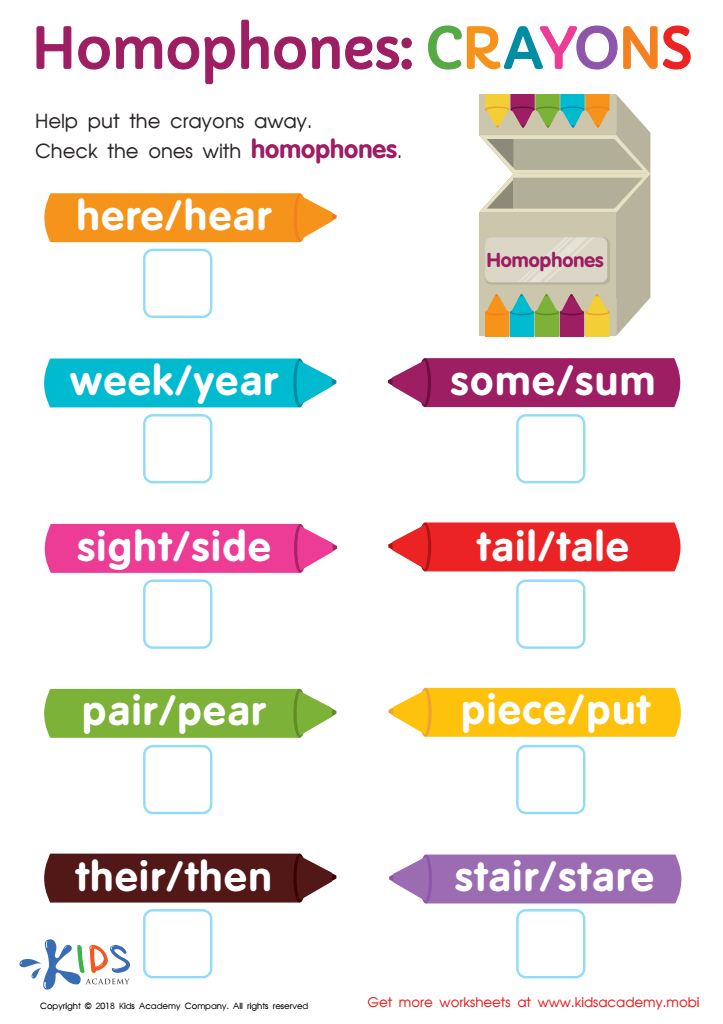Spelling practice Elementary Phonics Worksheets for Ages 6-8
3 filtered results
-
From - To
Enhance your child's spelling skills with our Elementary Phonics Worksheets designed for ages 6-8. Kids Academy offers engaging, printable worksheets that focus on foundational phonics and spelling practice. These activities help young learners recognize word patterns, strengthen their vocabulary, and improve their reading proficiency through fun and interactive exercises. Tailored to meet educational standards, our worksheets provide a step-by-step approach to mastering spelling, making learning enjoyable and effective. Visit Kids Academy to help your child achieve academic success with our expertly crafted learning resources.


Tricky Words Worksheet


Long I Vowel Team Coloring Worksheet


Homophones: Crayons Worksheet
Spelling practice is crucial for children aged 6-8 because it lays the foundational skills for effective communication, reading, and writing. At this stage, young learners are in a critical period for language development. They begin to understand the relationship between letters and sounds, which is central to phonics, a method of teaching reading based on sound-letter correspondence.
Spelling practice reinforces these phonics skills. When children practice spelling, they are not just memorizing words—they are learning patterns and rules that help them decode new words, boosting their reading fluency and comprehension. Mastery of spelling also builds vocabulary, enabling children to express themselves more accurately and creatively.
Moreover, spelling practice enhances fine motor skills through writing. Good spelling skills contribute to better and more confident writing, helping students organize their thoughts clearly. It also has a direct impact on student performance across subjects as clear written communication is essential in all areas of learning.
Parents and teachers should care about spelling practice because it fosters critical thinking, boosts academic confidence, and equips children with lifelong literacy skills essential for their academic journey and beyond. Consistent spelling practice translates to improved overall literacy, setting a strong foundation for future educational success.
 Assign to My Students
Assign to My Students











